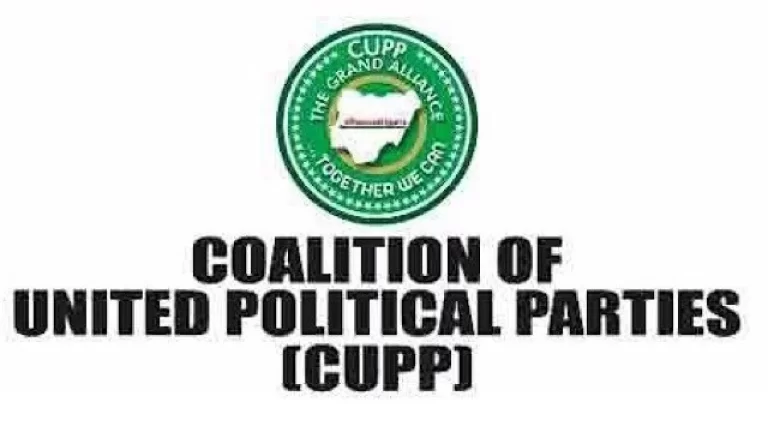The Coalition of United Political Parties, CUPP, has rejected what it describes as an anti-masses increase of electricity tariffs.
The group rejected the increase which it said is coming at a very difficult time in the life of the masses.
Describing it as one increase too many, CUPP called on the government to take up its responsibility of servicing the interest of the people and not the other way round.
“This government is very insensitive. They have no economic plans for the growth of the economy,” a statement signed by High Chief Peter Ameh Yakubu, its General Secretary, said.
“They do not think about the effect of a lazy policy of solving immediate downstream sectors.
“Now the cost of production by local manufacturers is inevitably going to increase, some factories will close up or relocate.
“Which will further worsen the dollar-naira ratio that Tinubu is using the romance economy to solve.
“The government, through NERC, introduced the increase to anti-people, anti-small businesses and anti-social welfare measures which will further push our people into multidimensional poverty.
“Remember that earlier in the year the World Bank and IMF came out to ask the Nigerian government to end the subsidy on electricity.
“The introduction of Band A, which covers about 15% of all consumers in Nigeria and which in reality does not exist (because no area or part of Nigeria enjoys anything close to 20 hours of electricity) might not even end there.
“As time goes on, the government, through NERC, will extend the increase to the non-Band A customers, increasing the burden to the already worsening situation of the masses.
“This may not be at the rate of 240%, but definitely, there will be an increase in the groaning low-income earners. This astronomical increase is unexpected and will likely continue to unleash harsh economic effects on our people.
“The effects of the 240% tariff increase on Band A consumers is that it will trigger a cost-push inflation whereby the cost of the tariff imposed on the producers of goods and services will be pushed to consumers.
“I wonder if Tinubu has economic councils and if he does, are they made up of seasoned political economists and market strategists?
“They appear to lack sensitivity and foresight when it comes to economic planning for the nation’s growth and the people’s welfare.”
